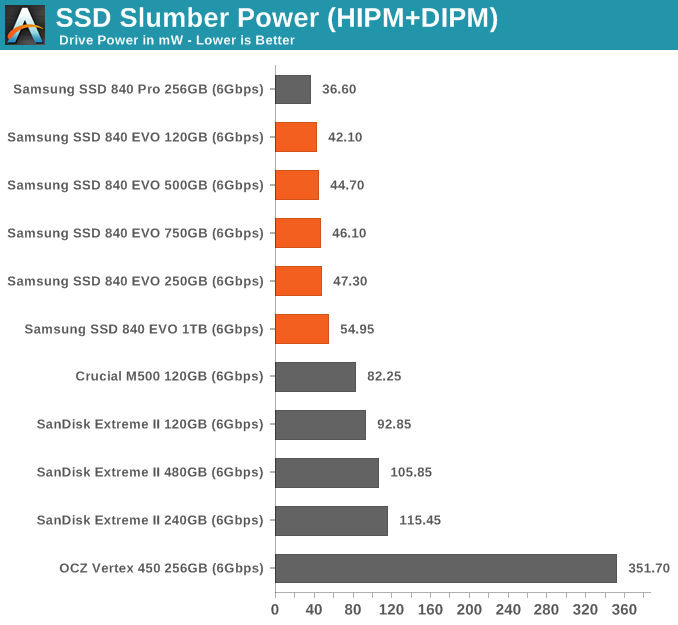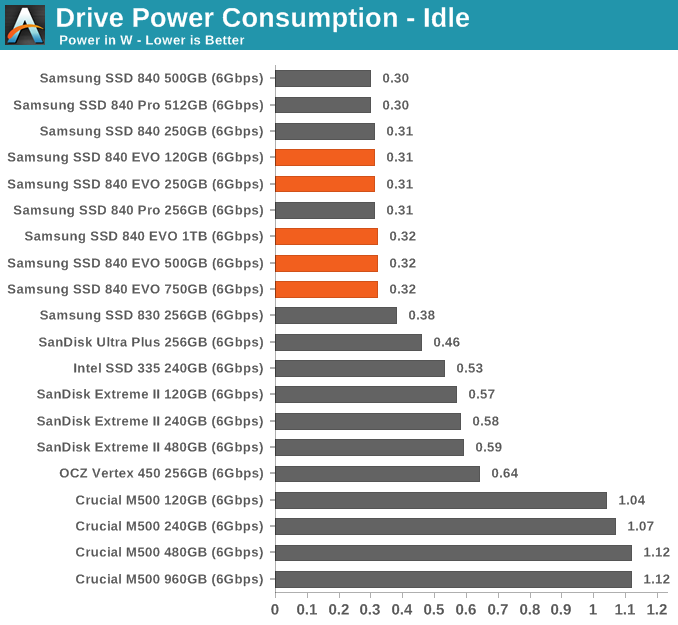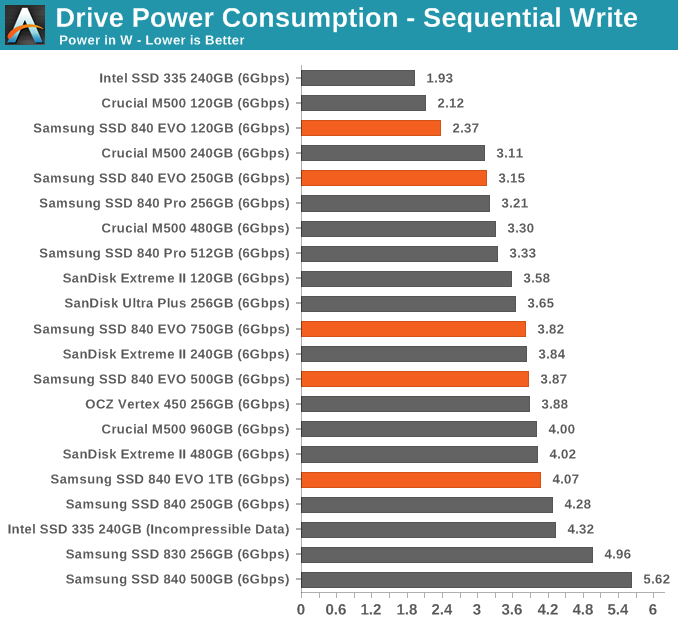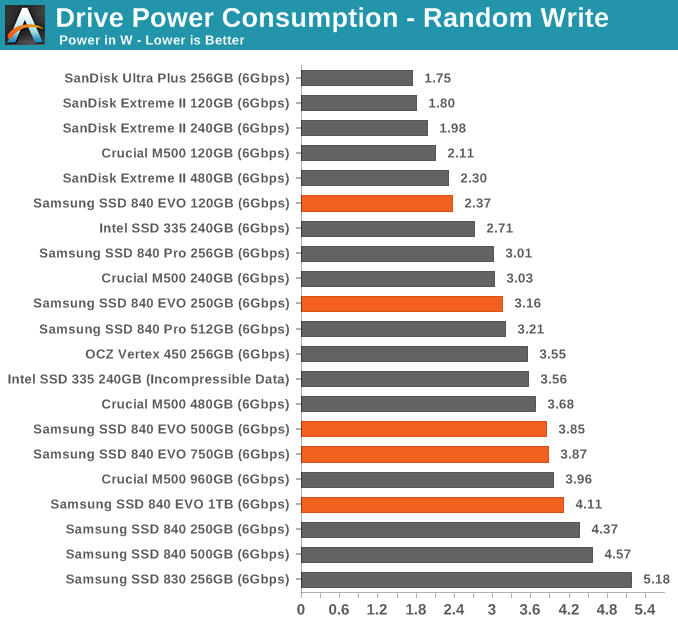Samsung SSD 840 EVO Review: 120GB, 250GB, 500GB, 750GB & 1TB Models Tested
by Anand Lal Shimpi on July 25, 2013 1:53 PM EST- Posted in
- Storage
- SSDs
- Samsung
- TLC
- Samsung SSD 840
Power Consumption
Low power consumption has always been a staple of Samsung's SSDs, and the EVO is no different. Idle and load power are among the best here. I'm also expanding our DIPM testing, first introduced in the SanDisk Extreme II review:
We're introducing a new part of our power consumption testing with this review: measurement of slumber power with host initiated power management (HIPM) and device initiated power management (DIPM) enabled. It turns out that on Intel desktop platforms, even with HIPM and DIPM enabled, SSDs will never go into their lowest power states. In order to get DIPM working, it seems that you need to be on a mobile chipset platform. I modified an ASUS Zenbook UX32VD to allow me to drive power to the drive bay from an external power supply/power measurement rig. I then made sure HIPM+DIPM were enabled, and measured average power with the drive in an idle state. The results are below:

The EVO is almost as good as the Pro from a slumber power perspective, and significantly better than anything else in the list here.













137 Comments
View All Comments
spazoid - Thursday, July 25, 2013 - link
It's free. Free is better.jhh - Thursday, July 25, 2013 - link
Are there any latency measurements in milliseconds as opposed to IOPS? With IOPS, the drive may be queuing rquests, making it difficult to translate IOPS to milliseconds per request.Kibbles - Thursday, July 25, 2013 - link
If I write 1gb/day on average to my SSD, since media files go on my home server, this drive would last me 395 years LOL!sheh - Thursday, July 25, 2013 - link
Anand, would you consider writing an article on the other aspect of endurance: data retention time? With TLC entering the fray it's starting to get even more worrying.It'd be interesting to know how retention time changes throughout a drive's life, trends in the last few years, differences between manufacturers, the effect of the JEDEC standard, whether there's any idle-time refreshing for old written cells, etc.
And an idea: I'd like to see drives where you can configure whether to use the drive as SLC/MLC/TLC. Switch to SLC for reliability/performance, TLC for capacity.
MrSpadge - Saturday, July 27, 2013 - link
"And an idea: I'd like to see drives where you can configure whether to use the drive as SLC/MLC/TLC. Switch to SLC for reliability/performance, TLC for capacity."Or a drive which switches blocks from TLC operation to MLC as it runs out of writes cycles. And finally to SLC.. at which point in time it should last pretty much infinitely.
mgl888 - Thursday, July 25, 2013 - link
Great article.Does RAPID require that you install a separate driver or does it just work automatically out of the box? What's the support like for Linux?
bobbozzo - Friday, July 26, 2013 - link
It's a driver, for Windows.TheinsanegamerN - Saturday, July 27, 2013 - link
and i dont think that rapid has a reason to be on linux. linux is already much better with ssd writes than windows.chizow - Thursday, July 25, 2013 - link
Minor spelling correction: http://www.anandtech.com/show/7173/samsung-ssd-840..."counterfit" should be "counterfeit"
chizow - Thursday, July 25, 2013 - link
Nice review Anand, I'm really glad to see almost all the top SSDs from numerous makers (Samsung, Crucial, SanDisk, Intel) are creeping up and exceeding SATA2 specs across the board and nearly saturating SATA3 specs.It really is amazing though how Samsung seems to be dominating the SSD landscape. I know this review is a bit skewed though since you presumably tried to include almost all the Samsung capacity offerings (for comparison sake), but the impact of the 840, 840 Pro and now the 840 EVO on the SSD market are undeniable. They really have no weaknesses, other than perhaps the Seq. Write Speeds on the 840/EVO.
I guess this is why there's so many deals currently on the 840, I bought the 250GB version earlier this month and don't really regret it given the price I got it for, but the EVO is certainly a step up in nearly every aspect.